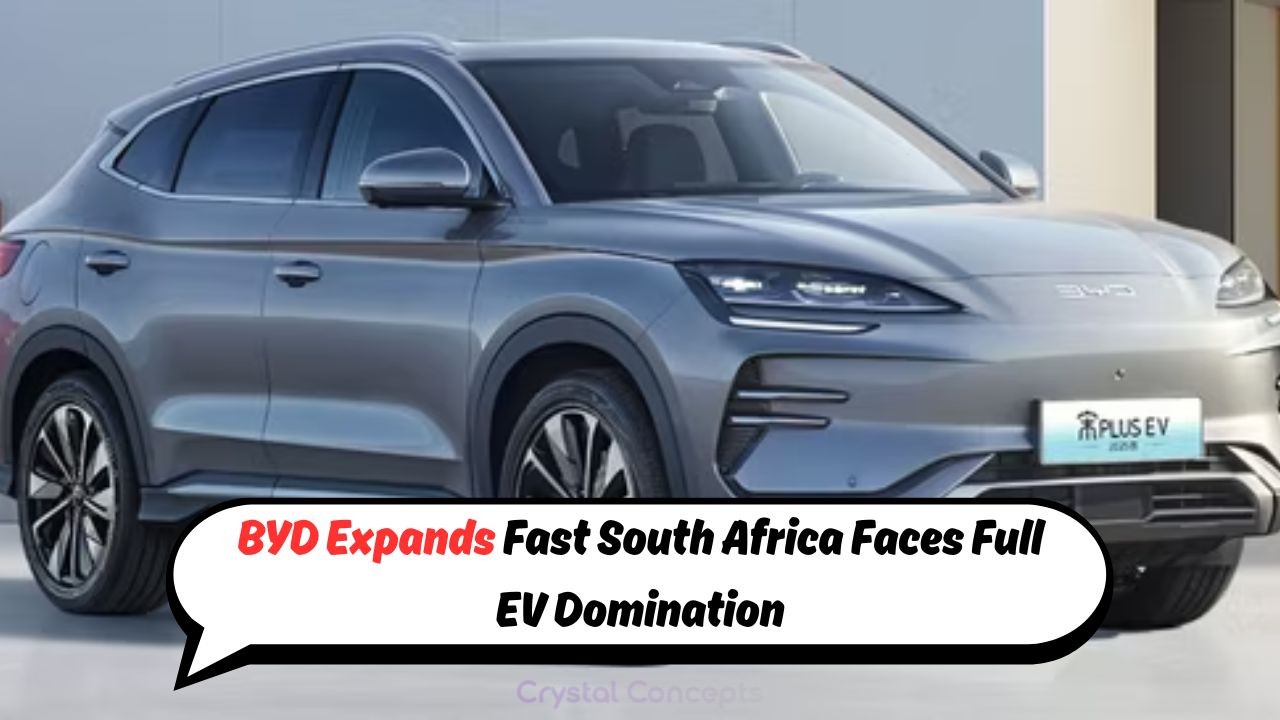BYD’s Ambitious Strategy: Tripling South Africa’s EV Dealerships by 2026: As the global quest for sustainable energy accelerates, South Africa finds itself at the forefront of an electric vehicle (EV) revolution. Leading this charge is BYD, a major player in the EV sector, with its bold plan to triple its dealership network across the country by 2026. This strategic move aims to enhance the accessibility of electric vehicles, drawing attention to the economic and environmental benefits of transitioning to a greener future. With its sights set on a full-scale EV transformation, BYD is not only investing in infrastructure but also aiming to educate the public on the advantages of electric mobility. The company’s commitment to expanding its reach aligns perfectly with South Africa’s goals of reducing carbon emissions and fostering a sustainable transport sector.
Understanding the Impact of BYD’s Expansion on South Africa’s EV Market
BYD’s commitment to tripling the number of EV dealerships by 2026 is a game-changer for South Africa. This ambitious expansion plan is expected to significantly influence consumer behavior and market dynamics. By increasing the availability of electric vehicles, BYD is making it easier for South Africans to transition from traditional fuel-powered cars to electric ones. This move is likely to drive competition among local dealerships, encouraging them to adopt similar strategies to cater to the growing demand for sustainable transport solutions. Furthermore, this expansion is poised to create job opportunities, not only within the dealerships but also in related sectors like EV maintenance and charging infrastructure development. As the network grows, it will also stimulate investments in renewable energy sources, aligning with South Africa’s commitment to reducing its carbon footprint.
- Increased availability of EVs
- Enhanced consumer choice
- Job creation in the automotive sector
- Boost in renewable energy investments
BYD’s Full-Scale EV Revolution: A Detailed Roadmap to 2026
BYD’s roadmap to achieving a full-scale EV revolution by 2026 is meticulously planned. It involves a multi-faceted approach that encompasses dealership expansion, infrastructure development, and consumer education. The company plans to strategically position its dealerships in key urban centers and emerging markets across South Africa. This strategic positioning ensures that a wider audience has access to its innovative range of electric vehicles. Additionally, BYD is collaborating with local partners to develop a robust charging network, which is crucial for the widespread adoption of EVs. By addressing the challenge of charging infrastructure, BYD is removing one of the major barriers to entry for potential EV consumers. The company’s education initiatives further aim to demystify electric vehicle technology and highlight the benefits of making the switch, thereby fostering a more informed and receptive market.
| Year | Dealerships | Charging Stations | Target Markets |
|---|---|---|---|
| 2023 | 50 | 100 | Urban Centers |
| 2024 | 100 | 200 | Suburban Areas |
| 2025 | 150 | 300 | Rural Areas |
| 2026 | 200+ | 400+ | Nationwide |
The Role of Government Policies in Supporting BYD’s EV Ambitions
The success of BYD’s EV expansion in South Africa is heavily reliant on supportive government policies. The South African government has shown its commitment to developing a sustainable transport sector by implementing policies that encourage EV adoption. These policies include tax incentives for EV buyers, subsidies for charging infrastructure, and stringent emissions regulations for traditional vehicles. By creating a conducive environment for electric vehicle growth, the government is paving the way for companies like BYD to thrive. Moreover, collaborative efforts between the government and private sector are essential to address the infrastructural challenges associated with electric vehicles. Through public-private partnerships, the expansion of charging networks and the establishment of EV-friendly regulations can be accelerated, thereby facilitating a smoother transition to electric mobility.
- Tax incentives for EVs
- Subsidies for charging stations
- Emissions regulations
- Public-private partnerships
Evaluating the Economic and Environmental Benefits of BYD’s EV Strategy
| Aspect | Economic Impact | Environmental Impact | Social Impact |
|---|---|---|---|
| Job Creation | Increased employment opportunities | N/A | Improved livelihoods |
| Renewable Energy | Investment in local energy sources | Reduced carbon emissions | Cleaner air |
| Consumer Savings | Lower fuel costs | N/A | Increased disposable income |
| Infrastructure | Development of new technologies | Efficient energy use | Enhanced connectivity |
Challenges and Opportunities in South Africa’s Transition to EVs
While BYD’s plan is promising, the transition to electric vehicles in South Africa is not without its challenges. The high initial cost of EVs, limited charging infrastructure, and consumer reluctance due to unfamiliarity with the technology present significant hurdles. However, these challenges also present opportunities for innovation and growth. For instance, the development of cost-effective EV models tailored to the local market can increase affordability and accessibility. Similarly, expanding the charging network through innovative solutions such as solar-powered charging stations can enhance infrastructure. Consumer education campaigns can demystify EV technology, building confidence and encouraging adoption. By addressing these challenges head-on, South Africa can position itself as a leader in the African EV market.
- Affordable EV models
- Innovative charging solutions
- Consumer education programs
- Government and private sector collaboration
- Investment in local manufacturing
Looking Ahead: The Future of Electric Vehicles in South Africa
| Year | Projected EV Sales | New Policies | Market Trends |
|---|---|---|---|
| 2024 | 15,000 | Increased subsidies | Growth in urban areas |
| 2025 | 25,000 | Expanded tax incentives | Rise in rural adoption |
| 2026 | 40,000 | Zero-emission mandates | Nationwide acceptance |
FAQ Section on BYD’s EV Revolution in South Africa
What is BYD’s goal for South Africa by 2026?
BYD aims to triple the number of its dealerships across South Africa by 2026, facilitating a full-scale EV revolution.
How will BYD’s expansion impact job creation?
The expansion is expected to create numerous job opportunities in dealerships, maintenance, and infrastructure development.
Are there any government incentives for EV buyers in South Africa?
Yes, the South African government offers tax incentives and subsidies to encourage EV adoption.
What challenges does BYD face in the South African market?
Some challenges include the high cost of EVs, limited charging infrastructure, and consumer unfamiliarity with the technology.










